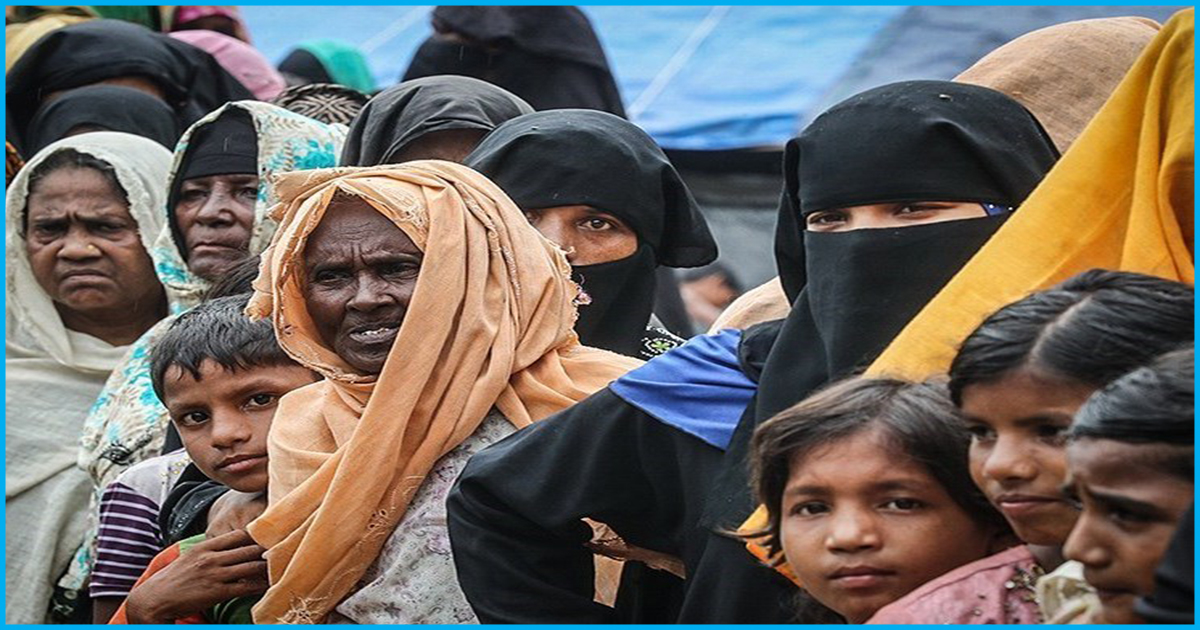The Assam Government on October 3, sent seven Myanmar nationals, who are widely suspected to be Rohingya refugees from a detention camp in Silchar to Imphal in Manipur. They are to be deported to Myanmar on October 4.
The seven illegal refugees were reportedly confined in a detention prison since 2012 in Cachar district of Silchar, Assam. This is the first deportation of Rohingya immigrants from India to Myanmar. Bhaskar Jyoti Mahanta, additional director general, Border Organisation called it a routine process and said that they had deported a Pakistani, an Afghani and 52 Bangladeshis recently.
The Myanmar diplomats have affirmed the identity of the seven Rohingya immigrants and have given them access to be deported from India. Moreover, a Supreme Court bench comprising Chief Justice Ranjan Gogoi and Justices S K Kaul and K M Joseph also allowed the deportation of the seven Rohingyas after an application was filed to restrain the centre from deporting them back to Myanmar, reported Economic Times. Advocate Prashant Bhushan sought a PIL hearing in the Supreme Court of India to impede the Government from deporting the refugees of Rohingya which was trenched.
Rohingyas in India
“The Rohingyas have spread all over the country mostly in the North-Eastern states, Kerala, West Bengal, Northern parts of Uttar Pradesh and the disputed region of Jammu and Kashmir,” said Union Home Minister Rajnath Singh, as reported by Hindustan Times. He had also said that the Rohingyas are not confined in the northeastern states only and have reached south Indian states including Kerala.
The Centre said that the illegal immigrants of Rohingya constitute a National Security threat and hence ordered all the State Governments to conduct biometric details of Rohingya refugees and to deport them to Myanmar. An estimation of 40,000 Rohingya’s has been living in India as illegal immigrants over the period of years, as reported by The New York Times.
Rohingya Crisis
The Rohingyas are a Muslim Indo-Aryan population living mainly along the west coast of Myanmar. While they can be found in India, Bangladesh, Saudi Arabia and many other countries, the largest number of Rohingyas are found in Myanmar. Within Myanmar, they are concentrated in the Rakhine State, located along the west coast. They number around 1.3 million out of the 52 million people who live in Myanmar.
The Rohingyas are stateless and suppressed minorities residing in the Rakhine province of Myanmar. From decades they have been denied participation in government jobs, education, health facilities by the Burmese government. Under the 1982 Citizenship Law of Myanmar, they have been denied Myanmar citizenship as the Myanmar government claims that they are illegal immigrants from Bangladesh and since then they are stateless minorities.
On August 2017, the Arakan Rohingya Salvation Army attacked 24 police posts in the northern Rakhine state of Myanmar, followed by which the military of Myanmar cracked down on the Rohingya Muslims. Around 700,00 Rohingyas fled from Myanmar and illegally took shelter in the nearby countries, mostly taking refuge in the Cox Bazar of Bangladesh.
What the United Nation has to say
Reportedly, a UN human rights expert has expressed concern on the Indian government’s deportation plan and has said that it could violate international law. UN Special Rapporteur on racism, Tendayi Achiume said, “Given the ethnic identity of the men, this is a flagrant denial of their right to protection and could amount to refoulement.” Moreover, she added that India has an international legal obligation to provide these people with the necessary protection.
Reportedly, two United Nations bodies have also criticized the move and urged the Indian Government to not take a step that would endanger the lives of those who will be deported.
Also Read: What Does The Indian Law & Constitution Say On Allowing Rohingya Immigrants In The Country?











